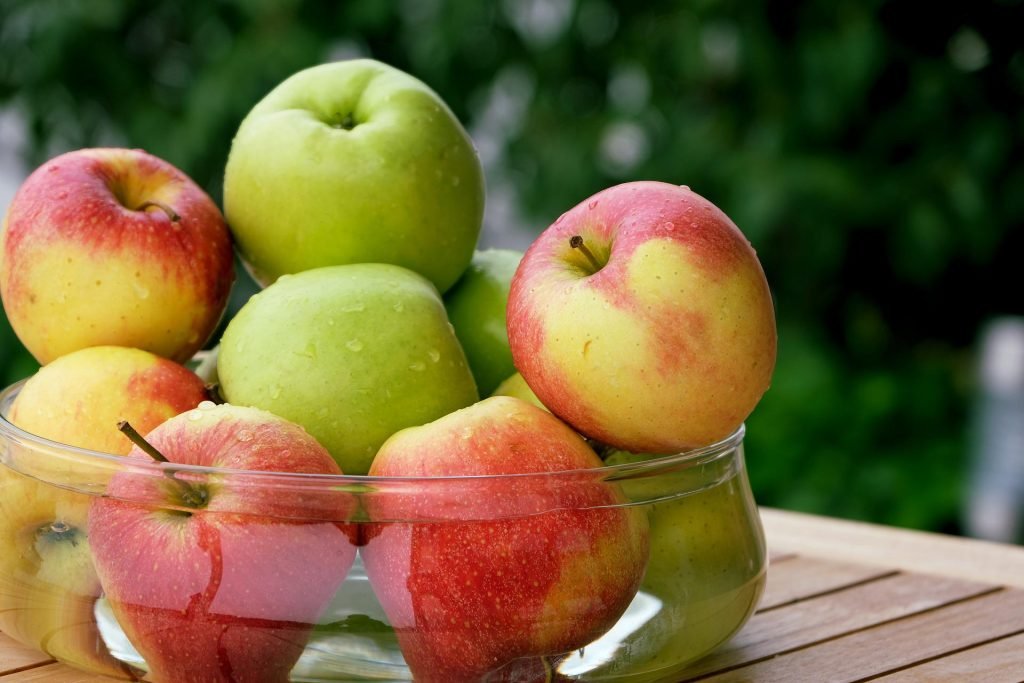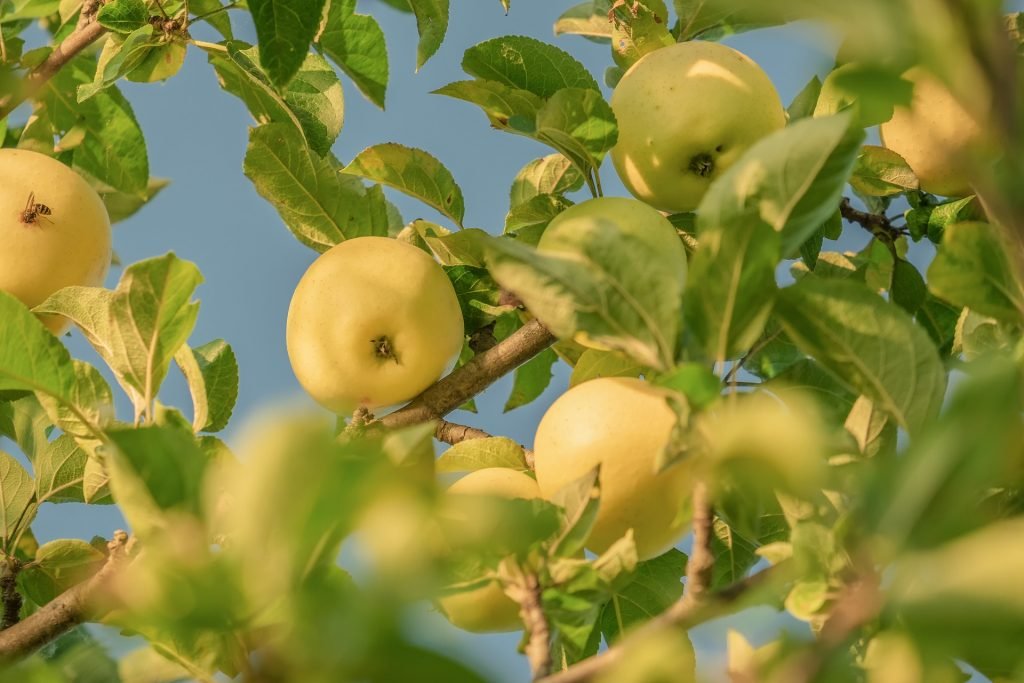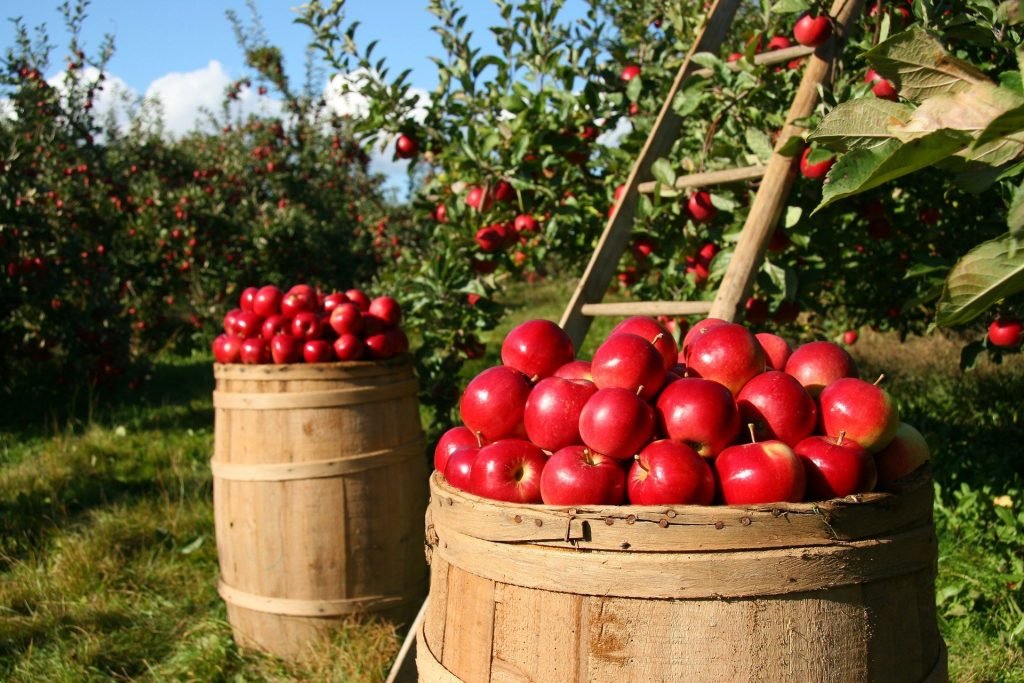
Apples are one of the most popular fruits in the world. They are famous for their great health benefits and nutritional values, and they contain lots of nutrients necessary for the body. They are characterized by their high content of antioxidants, flavonoids, and some types of vitamins, which make them a very useful source of nutrition.
Apples are a good source of a group of B-complex vitamins, such as thiamine (B1) and pyridoxine (B6), in addition to their richness in vitamin C, vitamin A, vitamin E, iron, and potassium, which play an important role in the work of enzymes necessary for metabolism, and many other nutrients. vital functions in the body.
It must be noted that peeling should be avoided, as its peel contains important antioxidants and dietary fiber.
100 grams of an apple contains 52 calories, in addition to a large group of vitamins and minerals necessary for human health, including the following:
| Nutrients | Value per 100 grams |
| Carbohydrates | 13.81 g |
| Protein | 0.26 g |
| Fats | 0.17 g |
| Fiber | 2.4 g |
Some studies have found that eating apples helps reduce the number of neurons damaged by oxidative stress. Apples help to protect nerve cells and thus help reduce the risk of Alzheimer’s disease. They enhance the efficiency of brain work and reduce the risk of dementia, a disease that develops through age.
In addition, studies suggest that people who eat foods less rich in flavonoids are more likely to develop Alzheimer’s disease and related dementia for about 20 years.
Some studies indicate that nutrients present in apples play a great role in reducing the risk of stroke. The reason for this is that they contain dietary fiber which protects blood vessels and promotes their health and blood circulation. Fiber also prevents clots and strokes.
Apples contain good amounts of fiber, and antioxidants, such as vitamin C, and potassium. These elements work together to maintain heart health and normal blood pressure. Also, they reduce the risk of heart disease complications.

In addition, eating apples and their dietary fiber, the most famous of which is pectin, contribute to lowering high cholesterol levels, especially bad cholesterol (LDL). This is a result of its role in protecting blood vessels and the blood circulation system. So it is advisable to include apples in the daily diet.
One of the benefits of apples is that they can help protect against type 2 diabetes because they maintain normal blood sugar levels.
Apples contain a relatively low amount of calories. They are free of cholesterol and saturated fat. Therefore, they are a healthy and suitable food to include in the diet of those who want to lose and maintain their weight.
One of the benefits of apples is to contribute to improving digestion and protecting the intestines because they contain fiber. Fiber also protects the mucous membrane of the colon from exposure to toxic and carcinogenic substances. So it is very useful for people with constipation as it helps activate the intestines.
In addition, apples contain pectin, which is an essential nutrient for maintaining the balance of beneficial bacteria in the intestine.
Apples are rich in many vitamins that benefit your health. They contain good amounts of beta-carotene, and vitamin C, which is a powerful natural antioxidant that is important for fighting diseases and infections, and preventing cancer, especially breast cancer.
Apples are also rich in flavonoids such as quercetin, epicatechin, and procyanidin B2. They also contain tartaric acid, which gives apples a sour flavor. All of these compounds help the body get rid of free radicals in addition to their role in strengthening the body’s immunity.
Some studies point to the potential role of apples in maintaining bone health and preventing osteoporosis, as they contain anti-inflammatory and antioxidant properties.
Despite the health benefits of apples stated above, they are not void of such negative impacts. Here is a list of the most well-known negative impacts:

Although eating apple pulp will not poison you, eating the apple seeds that are in the middle of the pulp of the fruit, whether intentionally or unintentionally, may lead to poisoning.
Apple seeds contain cyanide, a toxic substance that can cause death in large quantities. So it is advisable to completely avoid eating apple seeds.
We should note that cyanide poisoning resulting from eating apple seeds does not usually occur as a result of eating a small quantity of seeds. A person needs to eat large quantities of apple seeds until poisoning occurs.
Eating apples may sometimes stimulate the body to show an allergic reaction. But we should note that there are several types of apple allergies. So the symptoms that appear in the affected person may differ from one person to another. Here is a list of the general symptoms of apple allergies:
People with an apple allergy are often allergic by origin to plants that come from the Rosaceae family, in general. This botanical family is the same family as that of almonds, peaches, pears, apricots, and strawberries.
One of the possible harms of apples is that eating them or eating some products manufactured from them may raise blood sugar levels, especially their juice. So in case a person has diabetes, it is preferable that his blood sugar levels should be closely monitored if he wants to eat apples or drink their juice

Eating apples excessively may cause some digestive problems, such as nausea, diarrhea, and bloating because apples contain these substances:
Although eating a little apple pulp may not affect how some medications work in the body, this does not apply to some products made with apples, especially apple juice.
Drinking apple juice with some types of medications may reduce the ability of the gut to absorb and benefit from it, especially these types of medications:
Therefore, it is preferable to completely avoid drinking apple juice with the above-mentioned medicines.
Eating apples may cause choking. Eating raw apple pulp by children or adults who have difficulty swallowing may trigger their suffocation.
It is possible to avoid the negative impacts of this fruit by following these rules:
Leave a comment